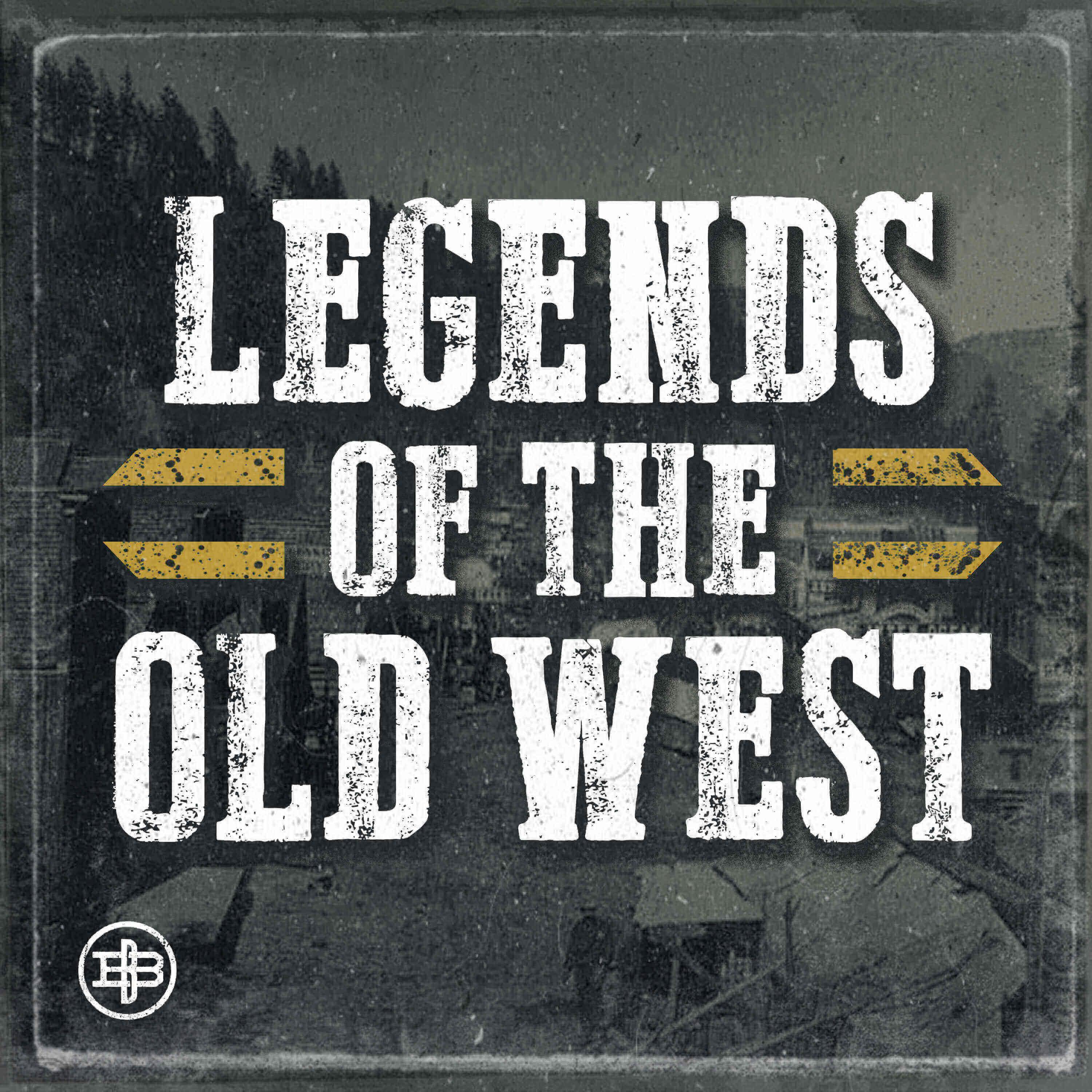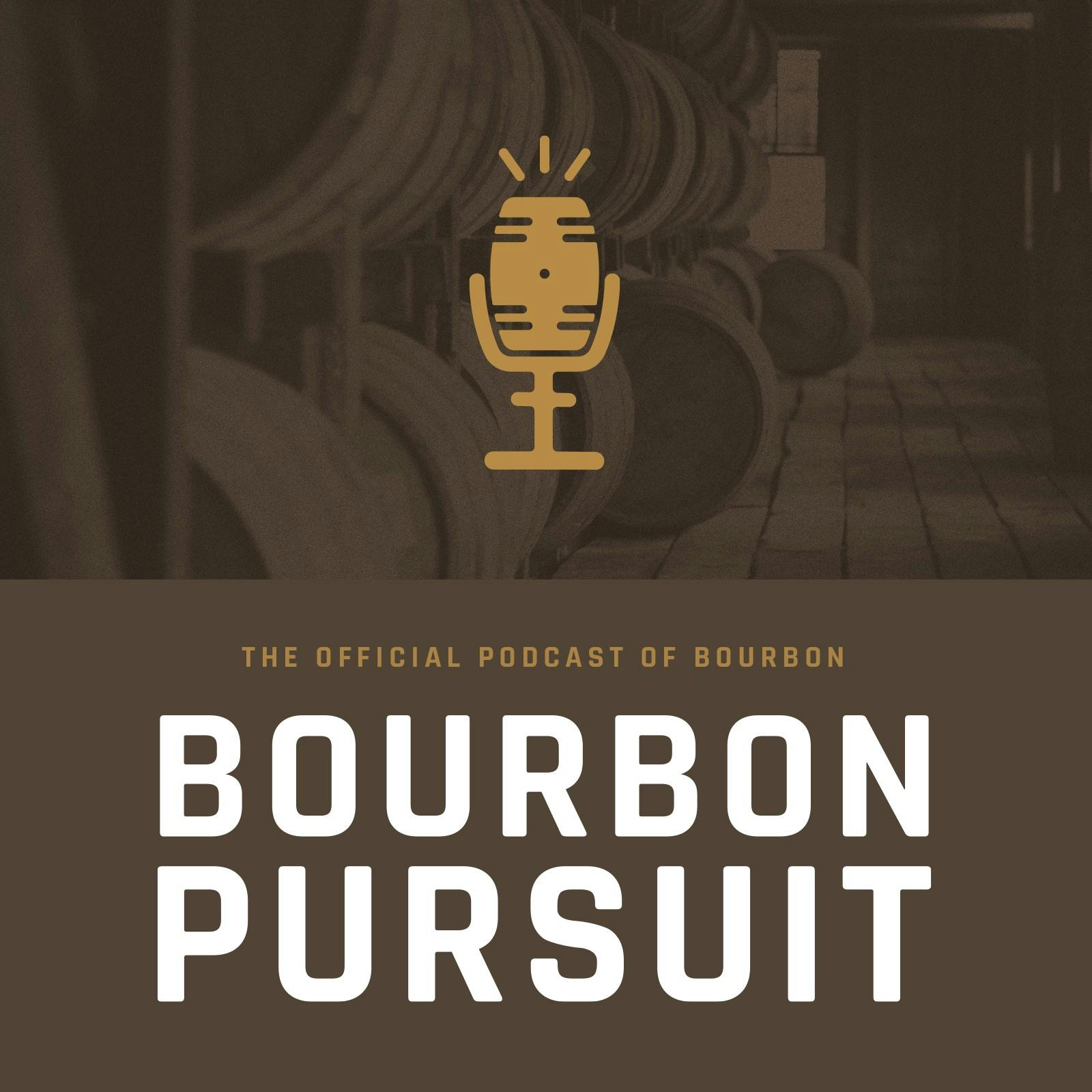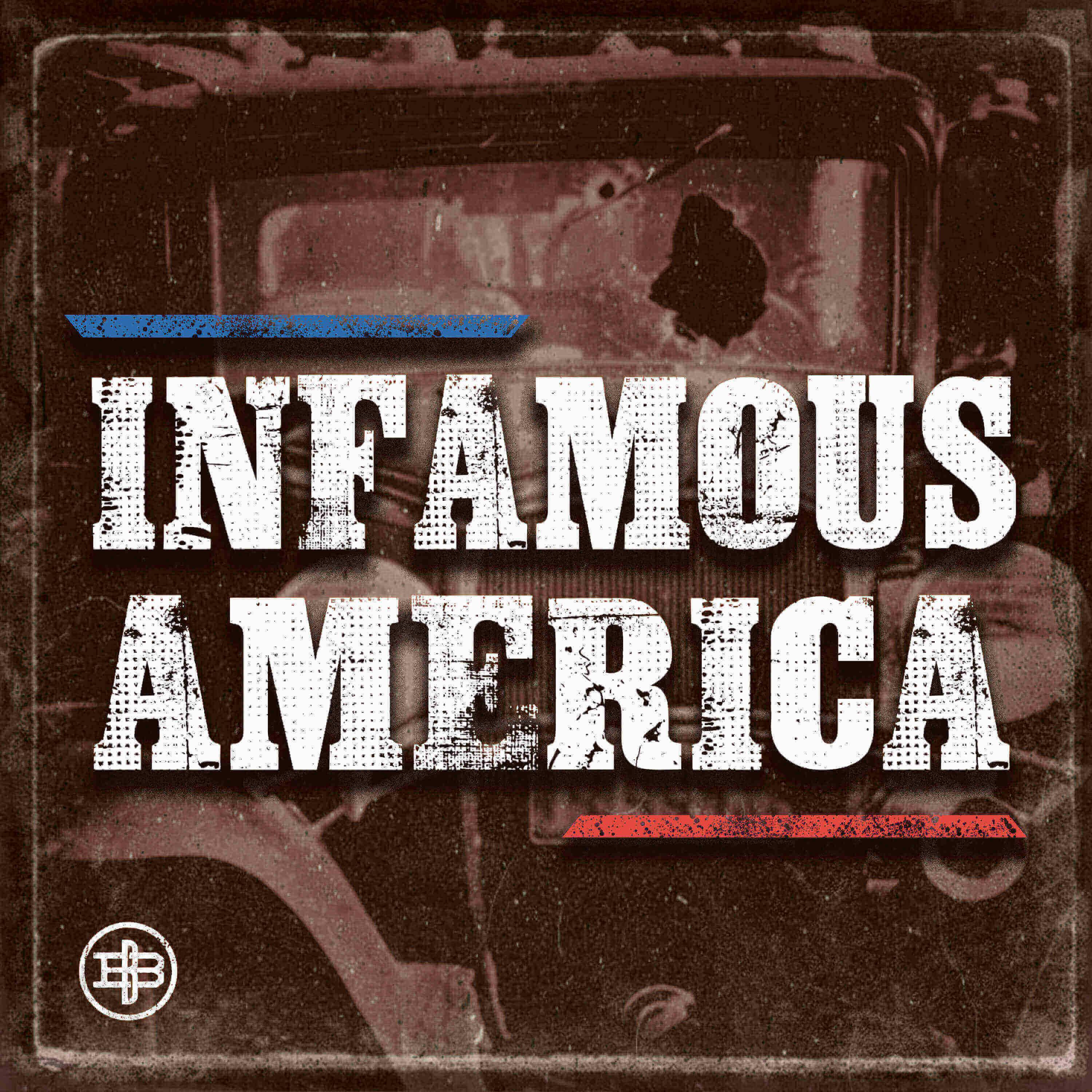
Bourbon: Legends from the Trail
Welcome to “Bourbon: Legends from the Trail,” the ultimate podcast where bourbon’s rich history and captivating stories are poured into every episode. Hosted by Travis Hounshell, a seasoned bourbon trail guide, this show explores the fascinating world of America’s native spirit, uncovering the legends, myths, and truths that have shaped bourbon’s legacy.
Each episode takes listeners on a journey through the heart of bourbon country, visiting iconic distilleries like Buffalo Trace, Maker’s Mark, Jim Beam, Four Roses, and Wild Turkey and many more! Travis dives deep into the lives of industry pioneers, from the infamous to the revered, shedding light on the personalities and events that crafted some of the world’s most beloved spirits. Discover how legends like Elijah Craig and Pappy Van Winkle helped shape bourbon’s legendary status, and uncover the secrets behind famous brands, like the story behind Maker’s Mark’s signature red wax or The Great White Whale of bourbon (a bourbon that most do not even know exists, but is a collector's apex)
Whether you’re a seasoned bourbon aficionado or someone who simply loves a good story, “Bourbon: Legends from the Trail” offers a flavorful blend of education, entertainment, and surprises. You’ll hear about the passion, innovation, and resilience behind each bottle, while learning the untold stories and serendipitous moments that turned bourbon into an enduring American icon.
Pour a glass of your favorite bourbon, uncork the history, and join us for a journey through time and taste. Hit subscribe or follow button and immerse yourself in the legends behind the spirit that continues to captivate whiskey lovers worldwide. Cheers to the stories, the craftsmanship, and the legends that live in every drop of bourbon!
Bourbon: Legends from the Trail
How Bourbon Came to Kentucky
Imagine the misty hills of Kentucky, where towering rickhouses stand as silent sentinels, holding secrets that stretch back over two centuries. What if I told you that a series of unexpected events - triggered by some of the most influential figures in American history - led to the birth of something truly iconic? A rebellion, an escape, and a group of pioneers all set the stage for what would become the heart and soul of Kentucky: Bourbon. Can all these events be traced back to the ideas of one man? A founding father of our country? I think so. Listen in as I go back in time and explain how his ideas brought about the birth of America's Spirit....Bourbon!
Feel free to email your thoughts about the episode or the show in general at thebourbonprincipal.com. I would love to hear from you!
Thank you for listening to Bourbon: Legends from the Trail, where history meets flavor and every bottle has a story to tell. Cheers to the stores and legends behind the Spirit! Please leave a rating and review as it will help me plan future episodes.
Let your mind’s eye wander a moment to the majestic eastern Kentucky mountains, their peaks draped in a lush tapestry of emerald green, and feel the cool, crisp air as it whispers through the rolling hills, each curve and dip a testament to the land’s timeless and rugged beauty. Now move a little further west to the vast, undulating fields of bluegrass that stretch out before you, a sea of verdant hues that shimmer like jewels under the gentle caress of a summer breeze. Amongst these fields, the regal thoroughbreds of Kentucky roam, their sleek coats glistening like polished onyx in the golden sunlight. Watch as they move with a grace and power that speak of their noble lineage, that has been bred over centuries for both beauty and speed.
Then In the distance, towering above the landscape, they begin to appear. The tall, centuries-old rickhouses that have stood as silent sentinels, their weathered wood and stone facades guarding the secrets and stories of the aged bourbon within. As you stand before them, the robust scent of oak and aged spirits seems to float through the air, mingling with the earthy notes of the surrounding fields, and then rising to the heavens as the angels take their share of Kentucky’s liquid gold.
Many times while I am with a group on the trail, I am asked how this revered spirit came to be discovered in Kentucky. “Discovered” might not be the right term to describe why Kentucky has become synonymous with bourbon. Legend has it that one of our Founding Fathers played a crucial, albeit indirect, role in ensuring that bourbon’s creation occurred here in the Bluegrass State. Which Founding Father, you ask, and how can he be held responsible? Well, that is the tale I’m about to tell.
But before we dive in, if you haven’t done so already, why don’t you grab your favorite bottle, pop the cork, pour yourself a generous glass, and settle into your favorite spot.
Welcome to “Bourbon…Legends from the Trail,” where history meets flavor, and every bottle has a story to tell.
Let us travel back in time to just after the American Revolution, it was a period of hope and uncertainty as our young nation was beginning to chart its course. The fledgling United States was in the early stages of establishing its new government, and one of our Founding Fathers was revealing a sobering truth to those around him, that our country was broke, broke as in we have no money. A substantial debt was looming large over our young nation. Our government owed money to the soldiers who had valiantly fought in the war, and many of those soldiers were farmers who had spent years away from home neglecting their duties to the farm and to their family. And not only did we owe those farmers, but the United States also owed France for its invaluable assistance in securing victory against Britain. Now, you might be wondering who, was that founding father was that was spreading the word about our monetary woes. Well, there is a wildly successful musical named after him today…..have you figured it out? That’s right, it was none other than Alexander Hamilton.
Many of the other founding fathers already knew of Hamilton’s keen intellect and penchant for innovation, and so they relied on him to come up with a plan on how to generate revenue to pay off our debts. Hamilton, always a man of action, had indeed been considering our options for some time. And through careful thought, he proposed a plan that called for a tax. Now not just any tax, this would be a tax on one of the most popular commodities of the time—Whiskey, specifically Rye Whiskey. Rye whiskey production went back to the first settlements by European settlers. Many of them came from England, Scotland, Ireland, and Germany, places that had been making alcohol for hundreds of years. This tax, Hamilton argued, would create a steady income stream that could be used to pay off the nation’s financial obligations.
While the idea was met with approval by the government, the farmers were far less enthusiastic, as you can imagine. As a matter of fact, these farmers were downright enraged. These were the very same farmers who had fought side by side with many of the men who now held government positions as they were battling for their independence, rallying against this “taxation without representation.” Now they found themselves being taxed on the very whiskey they produced from their leftover grains. To them, it did not make any sense. Their understanding was something like this, “So you the government are going to tax us on the product that we make from our leftover grain, so then you can turn around and pay us money you owe us for helping you win this war. You see, many of their farmers were actually cash poor. They relied on creating whiskey out of their leftover grain so that they could use it as cash. Now the government was asking them to pay a tax in cash that they did not have. It felt like a betrayal, and their discontent quickly boiled over into rebellion.
The farmers, feeling cornered and enraged, resorted to tarring and feathering tax collectors and launching ambushes against those who were sent to enforce the law. This became known as the Great Whiskey Rebellion of 1794. Now while there were no major battles that occurred, George Washington himself (still the sitting/acting President), had to lead the militia into Western Pennsylvania to quell the uprising. It did not take the farmers long to recognize that they could not win a war against the well-organized militia. But these, they were resourceful men, and they had another idea. This idea was actually inspired by none other than another founding father, Thomas Jefferson.
Around thirty years earlier, the British and French had been embroiled in a fierce struggle for control over America, a conflict that formed part of the broader European confrontation known as the Seven Years’ War. Native American tribes were allied with both sides, though they mostly supported the French, leading to the conflict being dubbed the French and Indian War here in America. Many soldiers fought on the frontier, the lands at this time beyond the Appalachian Mountains and along the upper Ohio River Valley. During and after the war, these soldiers returned with tales of the region’s incredible fertility and abundant wildlife. One notable figure among them was General George Rogers Clark. Now while you may not be familiar with that name, you probably recognize his younger brother’s name, William. William, you see, would go on to accompany a man named Meriwether Lewis on the famed Lewis and Clark expedition of the Louisiana Territory years later.
Following the war, and in the years leading up to the American Revolution, Thomas Jefferson— a man deeply rooted in science—had become aware of these reports of the great river that the Native Americans called the Ohio, meaning “Good River.” Eager to learn more, Jefferson was particularly fascinated by the accounts from Clark that described a land teeming with buffalo, elk, deer, and lush vegetation unlike any they had ever seen. Also, he learned that this fertile land was fiercely contested by various Native American tribes, including the Cherokee, Iroquois, Shawnee, and Osage, who had all been fighting over this bountiful hunting ground for hundreds of years.
Because Clark was familiar with the land and natives, Jefferson commissioned him to explore and map this territory. Clark’s expedition began in Pittsburgh, where the Allegheny and Monongahela rivers converge to form the Ohio River. The group met and journeyed down the river, meticulously documenting the land and its inhabitants. When they reached what is now Louisville, they encountered their first major obstacle—a rocky, 10-12 foot drop known as the Falls of the Ohio. Although not as imposing as the Niagara Falls, it was nonetheless impassable by boat, and forced the group to exit their boats and set up camp before they could continue on down past the falls. During this time, Clark observed the immense potential of the land around and decided that he was going to establish a settlement there, a settlement he named Corn Island. A few years later, Clark returned to the area and founded a fort to protect settlers from Native American attacks. The fort was named Fort Nelson. Today, visitors to Louisville can explore the original site of Fort Nelson by visiting none other than Michter’s Fort Nelson Distillery, which stands on the historic location of the fort.
Now the farmers who had participated in the Whiskey Rebellion again knowing they could not win against the militia, but still not wanting to pay the tax, well they became aware of Clark’s discoveries. Many of them decided to make a bold move. They packed up their families and crossed over the mountains through the Cumberland Gap or floated down the Ohio River, disembarking in some natural river port areas where today you will find the cities of Maysville, Louisville, and Owensboro, Kentucky. These pioneers were determined to start their life anew. Out of these port cities, they began to spread and claim huge parcels of land that they quickly cleared and broke ground. They could not wait to begin planting their crops—particularly their rye, the key ingredient in their beloved whiskey.
But yet again the farmers were challenged with a another problem: While they could plant and harvest their rye grain, Rye did not grow very well in Kentucky’s soil. The yields were poor, and the farmers faced the prospect of losing their livelihoods. But remember, these men had faced adversity many times, and they were resilient and full of ingenuity. They turned their attention to a crop that thrived in Kentucky’s fertile soil—CORN. Fields of corn soon stretched across the landscape as far as one could see. Then, with their leftover corn, they began to distill their whiskey, whiskey today that you know as Bourbon.
So there you have it. Today, bourbon is not only a symbol of Kentucky but also a testament to the resilience and ingenuity of those who settled the region. The rich history of bourbon is a reminder of the complex interplay between geography of the land, economy, and culture in the development of American traditions.
What a story right?
And to think, all of this began because George Washington’s Secretary of the Treasury and one of the Founding Fathers, Alexander Hamilton, he decided it would be a great idea to tax some farmers.
Well, if you enjoyed today's episode, don't forget to hit that subscribe or follow button if you have not already.
Thanks for joining me on this flavorful journey through time and taste....Cheers to the stories behind the spirit.
I am your host, writer, and producer...Travis Hounshell and THIS is Bourbon: Legends from the Trail.
Also you can help the show grow by sharing it with friends and leaving a rating or review on Apple Podcasts, Spotify, or wherever you listen. Visit legendsfromthetrail.buzzsprout.com and find us on instagram and Facebook at legendsfromthetrail
1. Music provided by Pixabay.com
2. Crohan and Clark, George Rogers Clark
https://locustgrove.org/people/george-rogers-clark/
3. Medium - "The Founder of Louisville, George Rogers Clark". Nick Howard, July 18, 2021
https://nahoward111.medium.com/the-founder-of-louisville-george-rogers-clark-1616f662c8ec
4. Library of Virginia. Dictionary of Virginia Biography - George Rogers Clark
https://www.lva.virginia.gov/public/dvb/bio.asp?b=Clark_George_Rogers
5. History Channel. "Whiskey Rebellion" - History Channel Editors. June 21, 2023
https://www.history.com/topics/early-us/whiskey-rebellion
6. Washington Library, Center for Digital History, Digital Encyclopedia, Whiskey Rebellion - Mount Vernon.org
https://www.mountvernon.org/library/digitalhistory/digital-encyclopedia/article/whiskey-rebellion
Podcasts we love
Check out these other fine podcasts recommended by us, not an algorithm.

Legends of the Old West
Black Barrel Media
The Whiskey Lore® Podcast
Drew Hannush
Bourbon Pursuit
Bourbon Pursuit
The Way I Heard It with Mike Rowe
The Way I Heard It with Mike Rowe